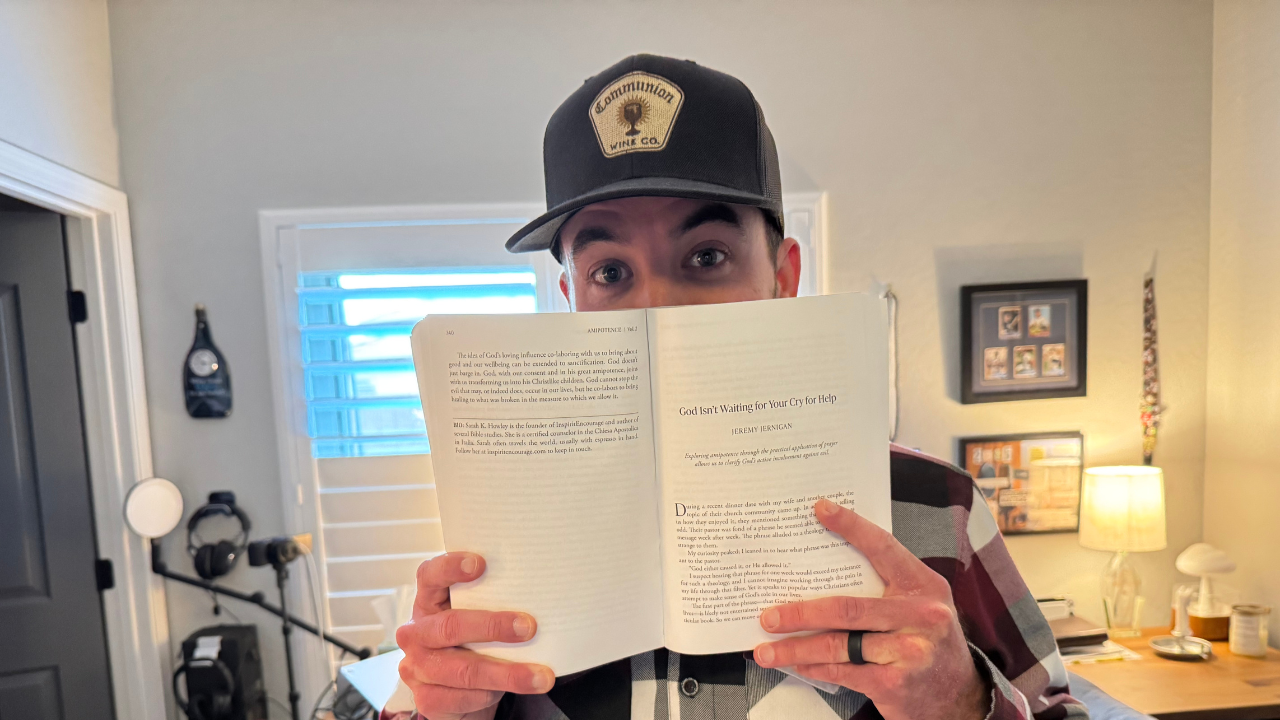It Turns Out God Is NOT Omnipotent

I had the opportunity to contribute a chapter to a two-part theology book that was recently published. The volumes explore Dr. Thomas Jay Oord's concept of God's "amipotence" (rather than omnipotence). My chapter was about how a good God isn't waiting for our prayers to act for our good.
When we read about Jesus healing the sick, advocating for the marginalized, and even forgiving those who crucified him, we’re seeing God in action. A God who embodies love, grace, and mercy. But here’s the key: a benevolent being is naturally opposed to evil. If God is truly good, then God cannot cause or even permit evil. That’s where the traditional idea of omnipotence begins to falter.
Many of us have wrestled with Old Testament stories that depict God in ways that don’t align with Jesus—stories that seem to justify violence, oppression, or even genocide. I've recently shared about Numbers 31 as a great example of this (see: The Worst Chapter in the Bible). If we replace the name “God” with “Jesus” in these stories, the dissonance becomes undeniable. How could a Jesus-looking God condone such acts? The answer is simple: God doesn’t. Instead, we start with the understanding that God is love (1 John 4:16) and then reinterpret these texts in light of Jesus’ character.
This brings us to the idea of amipotence. Unlike traditional omnipotence, which suggests God has unlimited power to do anything, amipotence acknowledges that God’s power is inherently relational and non-coercive. God’s power is love in action, always working against evil but never overriding free will. This doesn’t make God weak; it makes God trustworthy. A benevolent being who can stop evil does stop it—to the extent that love allows.
This brings us to the topic of prayer. If God is already actively working against evil, why do we feel the need to ask for intervention? Imagine one of my kids swimming too far out in the ocean. If they’re in danger, I’m not going to wait for them to cry for help before I act. I’m their dad; it’s my instinct to protect them. Yet sometimes, we treat God as if God is waiting for our permission to step in—as if our prayers unlock some dormant power. But that view doesn’t align with a God who is inherently good and always working for our well-being.
Prayer, then, isn’t about convincing God to care or act. It’s about aligning our hearts with God’s heart. This shift in perspective changes how we pray and live. Instead of pleading for God to intervene, we start looking for ways to partner with God in bringing about good. Prayer becomes less about desperation and more about participation.
This perspective also reframes how we handle unanswered prayers. If God’s power is relational and non-coercive, there will be times when God cannot stop evil without overriding free will or the natural order. It’s not that God doesn’t care or isn’t powerful; it’s that God’s love respects the boundaries of creation. As much as I want to protect my kids, there are limits to what I can do. God faces similar limits, not because of weakness but because of love.
So where does this leave us? It leaves us with a God who is always present, always working for good, and always inviting us to join in. It leaves us with a model of prayer that starts with trust in God’s active love. And it leaves us with the challenge to reflect God’s benevolence in how we live and love.
Click here to get a copy of the book.
(Disclaimer: As an Amazon Associate, I may earn commissions from qualifying purchases from Amazon at no cost to you. Your reading can help support my writing. Thanks!)
Sign up with your email and never miss a post!
We hate SPAM. We will never sell your information, for any reason.




